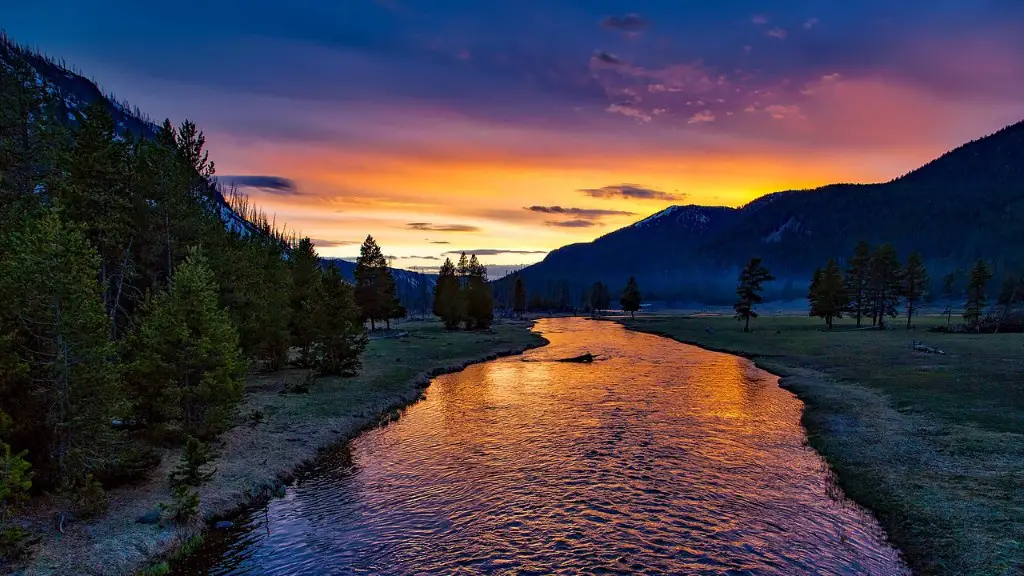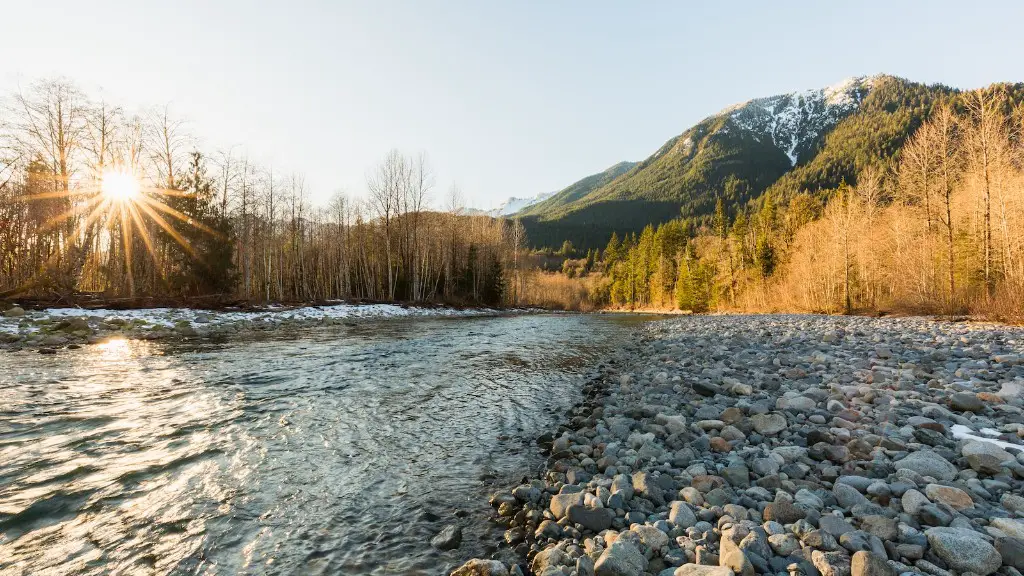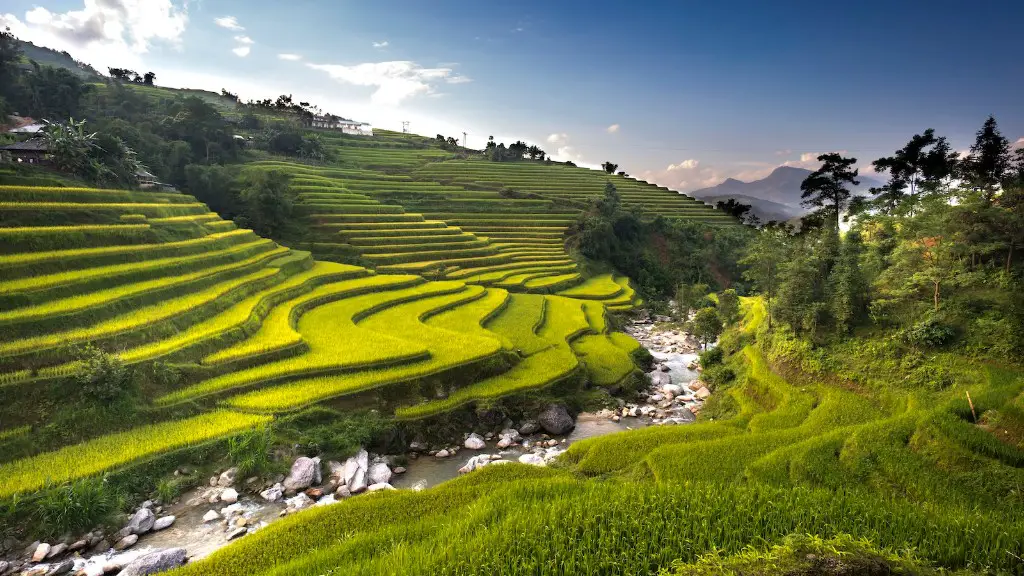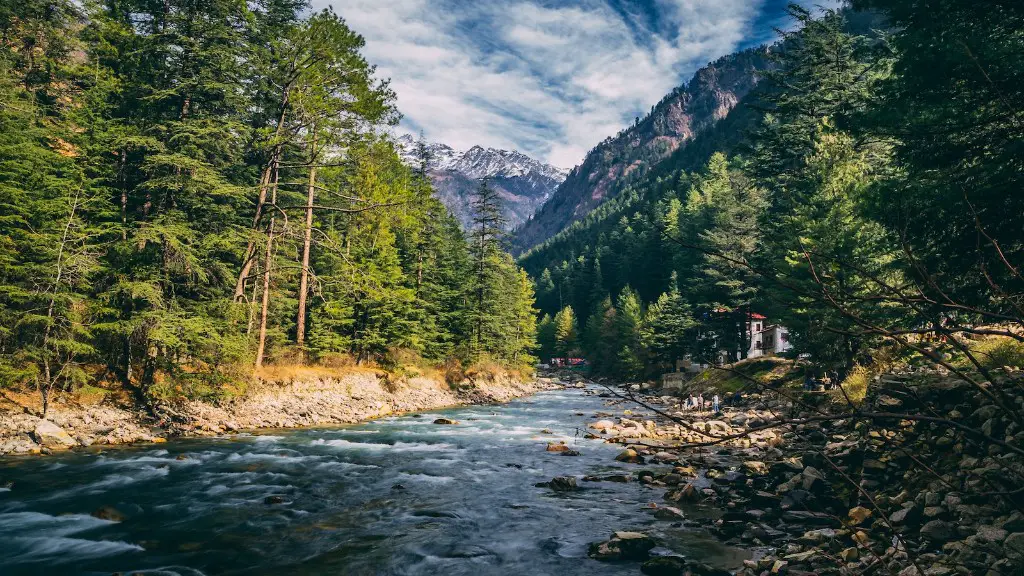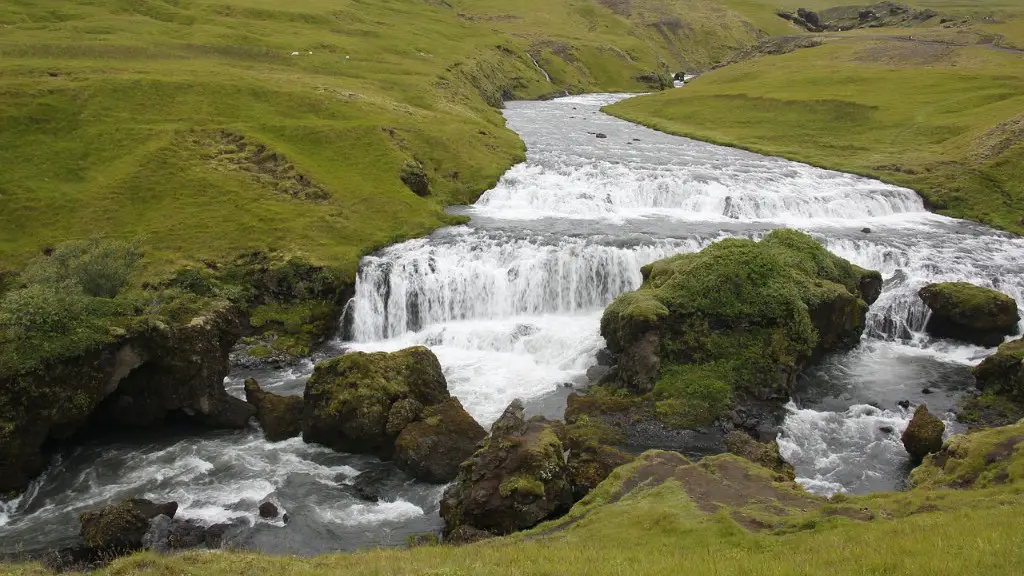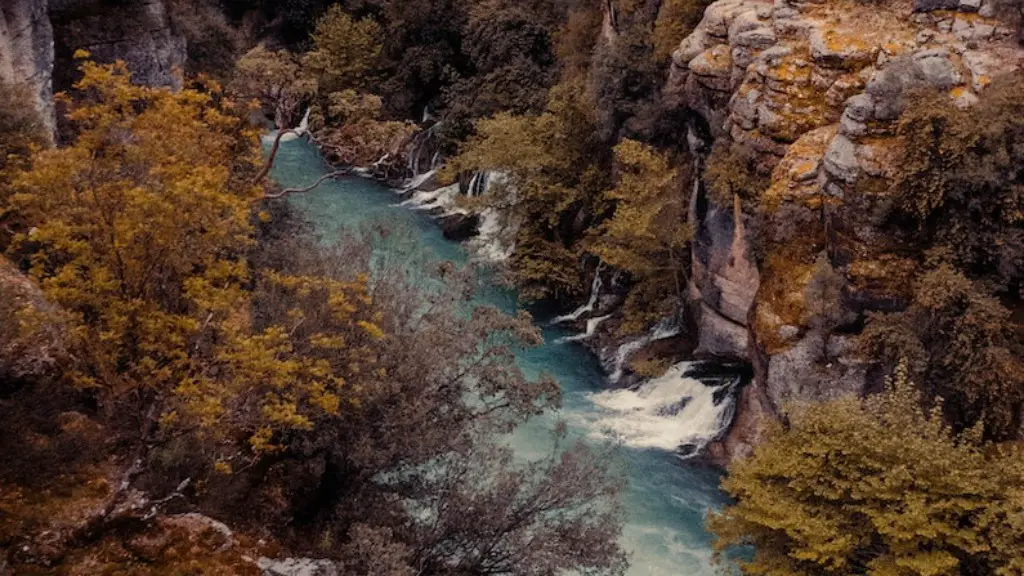European Colonization
The age of exploration that began in the 15th century forever changed the face of the earth. It marked the dawn of globalization and the start of a new world order. One of the main areas where this period of exploration had an effect was in the Mississippi River. During this time, various European countries such as Spain, France and Britain all attempted to establish colonies for control of the region and the river.
Perhaps most famous of all the countries that desired to gain control of the Mississippi River during this period was Spain. The Spanish conducted several expeditions in order to explore and establish outposts in the region that ran along the river. They wanted to be able to control the fur trade and deny access to the area to other nations. In 1539, Hernando De Soto was the first European explorer to traverse the area, which gave Spain a foothold in the region.
Another of the European powers who sought to control the Mississippi River during this period was France. In 1682, René-Robert Cavelier, Sieur de La Salle, was the first European to explore the entire Mississippi River system. His exploration provided a gateway for France to subsequently establish outposts and build trade alliances with the native Indian population. This gave them control over the strategic route and expanded their sphere of influence.
Lastly, Britain emerged as a major player in the Mississippi River during the age of exploration. It was during this period that Britain was expanding its reach to the north American colonies. One of the main factors in this expansion was the desire to gain control of the Mississippi River and its important trade. British explorer James Bruce made the first accurate map of the river system in 1766.
Trade and Settlement
The main reason why each of the major European powers wanted to gain control of the Mississippi River during the age of exploration was because of the great economic opportunities the area presented. For example, the region provided various fur and timber resources that were highly sought after. Along with this, the river provided a source of transportation and communication, allowing for the quick movement of goods and people.
The Mississippi River also played an important role in terms of settlement. As each of the European countries established outposts, this led to the eventual colonization of the regions along the river. In addition, the native Indian population started to become more integrated and assimilated into the European cultures. This allowed for the trading of commodities and the growth of towns and cities.
The control of the Mississippi River during this period also contributed to the eventual settling of the local frontier. In the late 18th century, Americans began to explore the reaches of the river and eventually settled the region. The area became popular and soon a new state was formed, Mississippi, which took its name from the vital river.
In the following century, the Mississippi River became a key part of the growing American economy. It provided a source of transportation and communication, but it was also a source of power. Much of America’s industrial infrastructure was built along or near the river, providing jobs and economic opportunity for thousands of people.
American and French Influence
Despite the European countries striving to control the Mississippi River during this period, eventually it was the Americans who gained the most influence in the area. This was due in part to the fact that the United States was expanding its reach further and further westward, bringing it closer and closer to the Mississippi River. They eventually managed to gain control of the entire length of the river.
Despite the increasing American control, there are still traces of the French and Spanish influence along the Mississippi River. The cities of St. Louis and New Orleans are populated with French and Spanish architecture, and there are still numerous forts and outposts in the area that bear witness to the struggles between these various powers.
Even today, the history of the age of exploration is still visible in the Mississippi River region. This makes it a top destination for visitors who want to learn more about the history of this vital region of the United States.
Implications
The exploration of the Mississippi River in the age of exploration had far-reaching implications, both for the river itself and for the region that surrounds it. As each of the various European countries attempted to gain control of the area, this led to the settlement of the region and the inclusion of native tribes into the European culture.
In addition, the control of the Mississippi River provided a valuable source of transportation and communication in the area, which has continued down to present day. This has allowed for the development of towns, cities, and industries that thrive along the banks of the mighty Mississippi River.
The age of exploration also had an effect on the environment of the river itself. As more and more people started to traverse and use the river, it led to the alteration of water flows, the introduction of invasive species, and the pollution of the river with chemicals and runoff.
Ultimately, the exploration of the Mississippi River age of exploration was a major event in world history. It transformed the region in many ways, and it continues to affect the lives of people today.
Legacies
The exploration of the Mississippi River during the age of exploration created a number of legacies that are still felt today. Firstly, it served to open up the region to the forces of globalization and the influx of new people, cultures, and goods. This brought with it a number of positive and negative changes, ultimately leading to the vibrant society that exists in the Mississippi River region today.
Along with this, the legacies of this exploration can also be seen in terms of the environment and the river itself. The alteration of water flows, the introduction of invasive species, and the pollution of the river with chemicals and runoff all contribute to the current state of the Mississippi River and its surrounding ecosystems.
Lastly, the legacies of this exploration can be seen in terms of the role the river still plays in the economic growth of the region. Much of the infrastructure along the Mississippi River relies on the river for transportation, communication and access to goods and resources. This provides essential jobs and economic opportunity for many people living near the river.
Changing Nature
Change is one of the main legacies of the exploration of the Mississippi River in the age of exploration. This period of exploration brought about great changes for the region, both for good and for bad. Although the arrival of Europeans paved the way for the growth of towns, cities, and industries, it also had a profound effect on the nature of the area.
One of the main changes that occurred was the alteration of water flows in the region. With the expansion of towns and cities along the river, much of the natural flow of the river was disrupted. This has led to many issues such as erosion, flooding and the creation of dams and levees.
Another of the changes that occurred as a result of the age of exploration was the introduction of invasive species into the river. Many of the species that were brought over by the Europeans, such as carp and catfish, were able to out-compete the native species in the area, leading to a decrease in the biodiversity of the area.
Lastly, the age of exploration also had a deep effect on the water quality of the Mississippi River. The growth of towns and cities near the river, as well as the introduction of runoff from agricultural activities, led to a decrease in water quality. This has had a deep effect in the present day, leading to further pollution and health concerns.
Modern Conservation
Given the issues raised previously, it is clear that the Mississippi River has faced a number of challenges over time. However, since the start of the 21st century, efforts have been made to address the various issues that the river is facing and to protect its health.
One of the main efforts that have been undertaken is the establishment of national parks and conservation areas in the region. These areas provide protection for the river itself, as well as the native species that inhabit the area. This allows for the restoration of habitats and ecosystems, and in turn, a healthier river.
In addition, there is a growing movement to clean up and restore the water quality of the Mississippi River. Big corporations, non-profit organizations, and private individuals are undertaking various initiatives to clean up the water and reduce the amount of pollution that is entering the river.
Finally, improvements have also been made to the infrastructure of the river. In recent years, more advanced ports and levees have been created to help with the transportation of goods, reducing the impact on the environment. This allows for further economic growth in the region as well.
Conclusion
The exploration of the Mississippi River during the age of exploration was a significant event in world history. It led to the colonization of the region and the eventual settling of the river by various European countries. It also had a great impact on the environment, introducing invasive species and degrading water quality.
However, over the last few decades, efforts have been made to address the various issues that the Mississippi River has faced and to protect its health. National parks and conservation areas have been established in the region and various initiatives are underway to clean up the water and reduce the amount of pollution entering the river.
These initiatives are key in preserving the beauty of the river, and as such, they should be supported. With the conservation of the river, we can ensure that the Mississippi River remains a vital part of our nation and a crucial component of our history.
